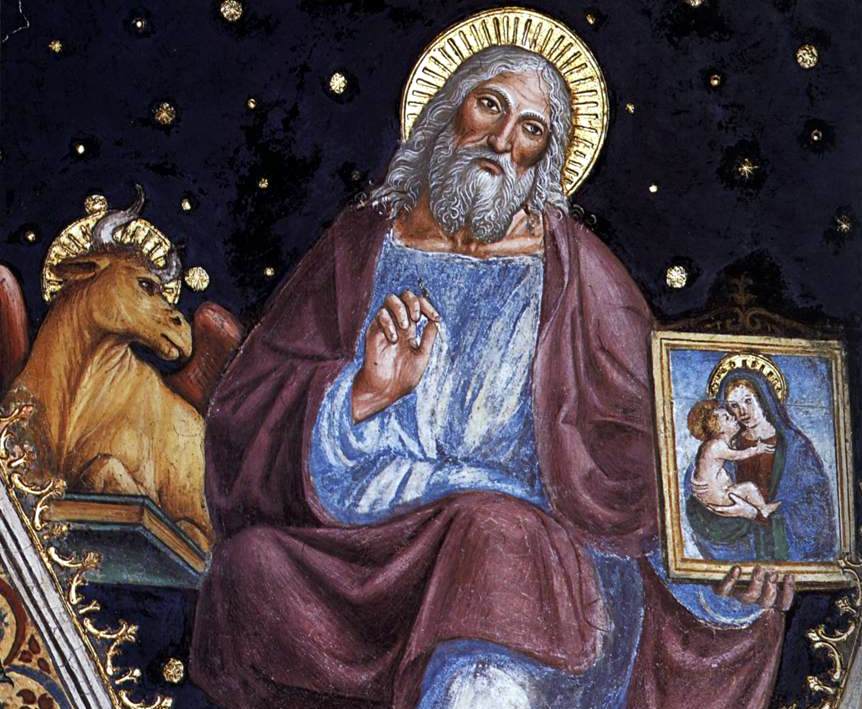In Time
2nd Sunday of Advent (C)
St. Luke is an historian. He is the author not only of Luke’s gospel, but also the Acts of the Apostles, which is the history of the first generation of Christians. It is no surprise, then, that he takes great care to root the events of his narrative firmly in the historical record. The gospel is not a fairy tale, and so Luke does not introduce us to John the Baptist, forerunner of the Lord, with the words, “Once upon a time there was a man named John who lived in the desert…”
No. John, like Jesus, is a real historical person. And so Luke makes sure to firmly root John in his time and place.
In the fifteenth year of the reign of Tiberius Caesar, when Pontius Pilate was governor of Judea, and Herod was tetrarch of Galilee, and his brother Philip tetrarch of the region of Ituraea and Trachonitis, and Lysanias was tetrarch of Abilene, during the high priesthood of Annas and Caiaphas, the word of God came to John the son of Zechariah in the desert (Lk 3:1-2).
These ancient names might not mean much to me or you, but they mean a lot to history. They are like temporal GPS coordinates, giving us John the Baptist’s precise location in time. This — and other things — firmly establish the events of the gospel narrative in a particular time and place.
The story of the Incarnation is the story of God entering into time. The eternal becomes temporal. The Author of history becomes a character in his own story. God acts in time, and at the center of time is Jesus Christ.
We live in the end times. We have been living in them for two thousand years. Jesus is the center of history. Everything before Christ was the beginning. Everything after Christ is the end. Everything before Christ points toward him. Everything after, points back to him. Even in our secular society we continue to mark our years as either before or after his coming.
God is eternal, but he acts in time. So even though we already know the end of the story, we are still watching it unfold in history. The mission that Christ gave to the Church has not been completed. We are still a pilgrim Church. We are still on the journey. The new earth and new heaven promised in Revelation have not yet been made manifest. The fulfillment of his promises is ongoing.
Personal History
The fulfillment of his promises in our individual lives is also ongoing. Our salvation has already been won by Christ. But our sanctification is a process that takes place in time.
St. Paul writes, “I am confident of this; that the one who began a good work in you will continue to complete it until the day of Christ Jesus” (Phil 1:6). If we wonder why we continue to struggle with temptation, attachment to sin, selfishness and pride, even though we love God, go to Confession, and pray every day, it is because God’s work in us is not yet complete. We are all works in progress.
St. Paul says, “This is my prayer: that your love may increase ever more and more in knowledge and every kind of perception, to discern what is of value, so that you may be pure and blameless for the day of Christ” (Phil 1:9-10). Christian discipleship is a life of active growth. It is a process of increasing in love, knowledge and wisdom until we become perfect. The idea of “perfection” may seem unattainable, but that is why we need grace. God wants the best for us and won’t settle for anything less. He loves us too much. Or as one person put it, “God loves you just the way you are, but he loves you too much to let you stay that way.”
Few of us reach perfection in this life, but that is the goal we strive for, and God will not stop working in the lives of those who love him until perfection is achieved (even after death, which is what Purgatory is all about). God works in time; in world history, but also in our personal history.
So if you are not perfect yet (and none of us are) don’t despair. God is still at work in you. This Advent, let us renew our commitment to cooperate more freely with God’s work in us. Let us prepare the way of the Lord in our hearts. May Jesus Christ fill in the valleys of our doubt and make low the mountains of our passions until the winding roads of our minds are made straight, the rough edges of our hearts are made smooth, so that one day our very flesh may rejoice in the salvation of God.
“Prepare the way of the Lord,
make straight his paths.
Every valley shall be filled
and every mountain and hill shall be made low.
The winding roads shall be made straight,
and the rough ways made smooth,
and all flesh shall see the salvation of God” (Lk 3:4-6).

